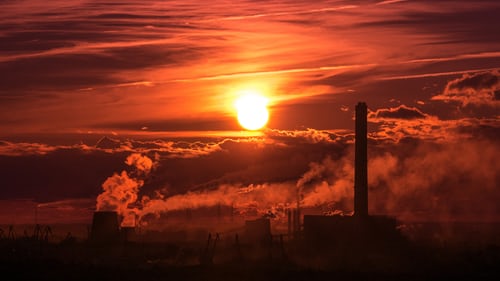Incinerators are unsuitable for Lebanon’s waste management since 52% is organic waste
By: Danah Kaouri
Photo by: Ant Rozetsky
Lebanon’s plans for establishing an incinerator in Beirut was met with warnings from environmental experts since the underdeveloped country lacks efficient governmental supervision to monitor air pollution and toxic emissions in the highly populated urban area, and since Lebanon does not have the necessary infrastructure to adopt this technology. In addition, this method is unsuitable in Lebanon since 52 percent of the country’s waste is organic (food waste) which has low flammability rate.
Environmental lawyer Paul Abi Rached said that, “Beirut’s municipality is pushing for the implementation of these incinerators.” Abi Rached also said that there might be law suits filed against the municipality by citizens and environmental NGOs, “citizens or NGOs can go to Shoura State Council and file a law suit to cancel this step.” Regarding the new law that was issued in September, 2018 that would permit municipalities to decide their own strategies for waste management, Abi Rached commented “the new law for waste management encourages the implementation of incinerators rather than incriminating them.” Abi Rached also added that “the ministry of health has been very quite in this regard.”
Hassan Bazzi, an environmental expert, says “unfortunately, theres no clear law that warns against establishing incinerators, there are laws regarding air pollution so they are depending on thermal dissociation coefficient which only produce toxic ash that can be disposed.” But environmentalists still push against incinerators, according to Bazzi, an incinerator will surely produce toxic emissions which are a main cause for lung cancer and global warming, plus, the minimum diameter of the fire is 40 kilo meters, which can reach far areas like Saida and Keserwen. Bazzi also highlights “we proposed a profitable recycling plan for the government which would cost around 20 million dollars nationally, with only one landfill in Jroud Ersal far from residential areas, but sadly it was rejected.”
According to a documentary produced by environmental engineer Ziad Abi Chaker, Lebanon does not have the necessary equipment to operate an incinerator. The documentary took the incinerator in Denmark who’s end product is hot water and electricity as an example and showed that the country’s total organic waste was only 33 percent, Denmark also has a very advanced recycling program. In Addition, Denmark is equipped with dioxins labs which monitor these cancerous substances. Lebanon does not comply with the points mentioned above. “Before even thinking about building incinerators, the government should think about these costly equipments.” says Abi Chaker.
Another factor to think about, is the next generation in the environmental field. “We as the future generation of environmental engineers will have to bare the consequences of an incinerator.” says Ahmad Shhab, an environmental engineer masters student at The American University of Beirut “According to what we learned in our courses, incinerators are definitely not an optimal solution for Lebanon, since most waste is organic.” Shhab continues. “Recycling is very important and up until now it seems that its is the most viable solution, the main problem is that participation rates are low.” concludes Shhab.


